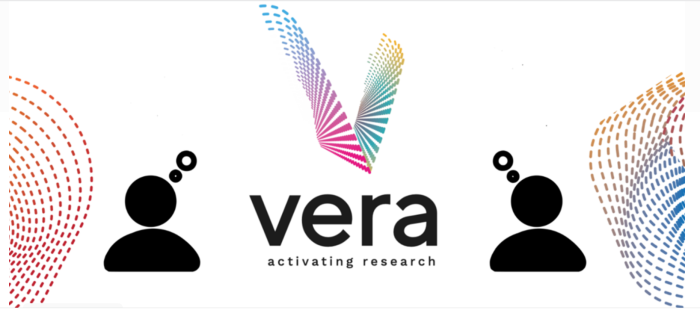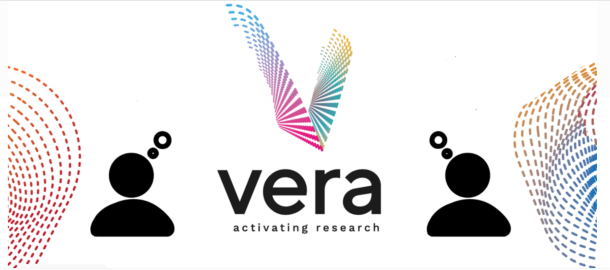Activating Research collaboration through platforms: the VERA case study
- September 26 |
- 14:15 |
- Demo Session |
- Sala de Protocolo Nouvel

Citizen science is a well-established domain in most of the scientific disciplines. Far less is known about the practices of citizen science in the social sciences and humanities.
These disciplines can be characterized by a diversity of publication languages, an entrenchment in diverse cultural backgrounds and the need for specific forms of scholarly communication (such as, amongst others, monographs, critical editions, and edited bibliographies).
In addition, the small size of resource providers, the historical underfunding and lack of sustainability in this area, and the variety of technical skills and resources across the community lead to different practices of citizen science. Often under different names (such as e.g. public humanities), citizen science in the social sciences and humanities involves intensive collaborations in small-scale projects. When developing citizen science practices, they therefore face specific challenges at different levels and lack the needed support.
Built in the framework of the EU funded project COESO, VERA - Virtual Ecosystem for Research Activation is an online platform designed for researchers and “engaged stakeholders” (community-based organizations,experts of practice, service providers, politicians, journalists, etc.) to co-create participatory research projects within the social sciences and humanities disciplines and is one of the services offered by the OPERAS Research Infrastructure.
The goal of VERA is to provide a powerful but easy-to-use collaboration platform, where VERA users shape and successfully carry out citizen science projects in the social sciences and humanities disciplines. VERA is designed to enable users to easily work together on the diverse projects they create. The adaptable interface supports projects with different kinds of goals, purposes, topics and requirements. VERA provides users with the collaborative features they need to carry out their initiatives by offering a menu of the most used services to use within their project, such as video conferencing, document sharing, and archiving.
Users must be able to easily find other stakeholders to involve in their projects: therefore a matching service allows the discovery of other persons and potential collaborators within VERA.
The actual design and development of VERA was a collaborative process itself. The platform was in fact co-designed involving the SSH citizen science community since the very beginning. Furthermore, VERA is interoperable by design; it is currently integrated with EU-Citizen.Science, GoTRIPLE and Fundit platform to support projects visibility, identification of potential collaborators and relevant researches and to identify funding opportunities.
Thanks to VERA you can:
Create your profile and establish new collaborations
Connect with other professionals (researchers, journalists, activists, community association members, NGO staff, etc.) who are addressing the same societal issues that concern you to create your project team.
Set up and manage your project with the communication and organizational tools that your project needs for successful implementation.
Search for and stay updated on funding opportunities for your citizen science projects.
Share your project on eu-citizen.science and GoTriple platforms to gain further visibility.
Through this live demonstration, participants will have the opportunity to see the main features of the VERA platform and understand its potential.
Organisations involved
Presenters
-
Daniel Lisbona
Deputy Group LeaderDaniel Lisbona, responsible for the communication strategy and project manager of the Ibercivis Foundation. With a degree in Psychology and a Masters in Human Resources Management, Daniel has spent much of his professional career working with foundations and non-profit organizations, planning their communication strategy and developing collaborative social innovation projects. As head of communication for citizen science projects, Daniel is in charge of planning and promoting the necessary actions for the recruitment and engagement of participants in this type of initiatives, designing and implementing the necessary tools: editorial calendar, website, blog, social media profiles, newsletter, events and face-to-face activities, etc. He also works on the implementation of social innovation activities related to the co-design of products and services, as well as for the sharing of citizen initiatives related to science, its openness to society and development. He currently divides his time in several of the European projects in which Ibercivis participates, such as NEWSERA -where, through co-creation processes, citizen science is used as a tool for scientific communication- DECIDO -identifying the stakeholders that will make use of its early warning tools for natural emergencies- COESO -contributing to the development of the European funding platform for citizen science, social sciences and humanities- and SOCIO-BEE -leading the pilot project to be held in Zaragoza in 2022. -
Tiziana Lombardo
Tiziana Lombardo is project manager and business developer at Net7 srl where she is in charge of project coordinator within R&D IT related International Collaboration Projects. She gained relevant experience in managing ICT and innovation projects in the public and private sector in different fields comprising cultural heritage, digital preservation and Research Infrastructures. Her interests include EU policy development in ICT domain and digital transformation in social science and humanities. In Net7 she is in charge of coordinating the Digital Humanities unit and its business strategy.
